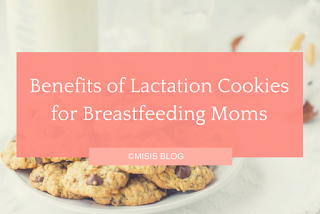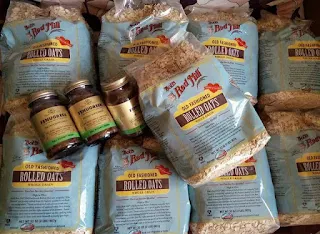Nutrition in pregnancy
Nutrition in pregnancy is a very important topic we must discuss . You will have a baby soon, congrats! But now you must be aware of your health, your baby will grow up from your health, so you must eat well.
But what should I eat when I am pregnant?!
To maintain a healthy pregnancy, approximately 300 extra calories are needed each day. These calories must come from vegetables, fruits, protein, carbohydrates and sweets.
A well balanced diet can help to reduce the symptoms of pregnancy like constipation and nausea.
Definition of nutrition in pregnancy
In the context of pregnancy, nutrition refers to the consumption and utilization of food and nutrients that directly impact the health and well-being of both the mother and the developing baby. It encompasses the intake of essential dietary components like carbohydrates, proteins, fats, vitamins, minerals, and water, and how these components are used by the body.
Important of nutrition during pregnancy
During pregnancy, your body undergoes significant changes to support the growth and development of your baby.
Proper nutrition plays a crucial role in ensuring a healthy pregnancy for both you and your baby. Here's why nutrition is so important:
Benefits for the baby:
Healthy fetal development:Proper nutrition provides the essential nutrients like protein, vitamins, minerals, and healthy fats necessary for your baby's organ development, brain growth, and overall health. Deficiencies in these nutrients can lead to birth defects, low birth weight, and other complications.
Reduces the risk of chronic diseases: Good nutrition during pregnancy can help reduce the baby's risk of developing chronic diseases like obesity, diabetes, and heart disease later in life.
Stronger immune system: A balanced diet supports the development of your baby's immune system, making them less susceptible to infections and illnesses.
Benefits for the mother:
Reduces pregnancy complications: Proper nutrition can help reduce the risk of pregnancy complications like gestational diabetes, preeclampsia, and preterm birth.
Increased energy levels: Eating a healthy diet provides your body with the energy it needs to cope with the physical demands of pregnancy.
Improved mood and well-being: Balanced nutrition can contribute to better emotional well-being, reducing the risk of pregnancy-related depression and anxiety.
Easier postpartum recovery: Proper nutrition during pregnancy can help you recover faster and regain your strength after childbirth.
What is the most important food for pregnant woman
The following foods are beneficial to your health and fetal development during pregnancy:
Vegetables: carrots, sweet potatoes, pumpkin, spinach, cooked greens, tomatoes and red sweet peppers (for vitamin A and potassium)
Fruits: cantaloupe, honeydew, mangoes, prunes, bananas, apricots, oranges, and red or pink grapefruit (for potassium)
Dairy: fat-free or low-fat yogurt, skim or 1% milk, soymilk (for calcium, potassium, vitamins A and D)
Grains: ready-to-eat cereals/cooked cereals (for iron and folic acid)
Proteins: beans and peas; nuts and seeds; lean beef, lamb and pork; salmon, trout, herring, sardines and pollock.
What to drink during pregnancy
During pregnancy, staying hydrated is crucial for both your health and your baby's development. But what exactly should you be drinking? Here's a breakdown of the best and worst choices:
Best Drinks for Pregnant Women:
Water: The clear winner, water is essential for hydration, nutrient absorption, and overall well-being. Aim for 8-10 glasses per day.
Milk and fortified plant-based milks: Provide calcium, vitamin D, and other essential nutrients for you and your baby. Opt for low-fat or fat-free options.
Unsweetened herbal teas: Can offer relaxation and additional nutrients depending on the tea. Choose pregnancy-safe options like chamomile, ginger, or peppermint.
Freshly squeezed fruit juices in moderation: Provide vitamins and antioxidants, but limit intake due to their high sugar content. Dilute with water if desired.
Clear broths: Can be hydrating and provide some electrolytes, especially helpful if you're feeling unwell.
Drinks to Limit or Avoid:
Sugary drinks: Including sodas, sports drinks, and energy drinks. High in sugar and calories, offering little nutritional value.
Caffeine-containing drinks: Limit coffee and tea to 200mg of caffeine per day (about one 12-ounce cup of coffee). Avoid energy drinks and limit other sources like chocolate.
Alcohol: No amount of alcohol is considered safe during pregnancy. It can harm your baby's development.
Unpasteurized milk and juices: Can carry harmful bacteria that can be dangerous for you and your baby.
Herbal supplements and teas: Some herbs can be unsafe during pregnancy. Consult your doctor before consuming them.
Which fruit is best during pregnancy
There isn't a single "best" fruit for pregnancy, as each fruit offers unique vitamins, minerals, and other beneficial nutrients. The key is to incorporate a variety of fruits into your diet to ensure you and your baby receive a wide range of essential nutrients. Here are some fruits particularly beneficial during pregnancy:
Fruits rich in folic acid:
Citrus fruits: Oranges, grapefruits, lemons, limes
Tropical fruits: Mangoes, papayas, kiwis
Berries: Strawberries, blueberries, raspberries, blackberries
Leafy green vegetables: Spinach, kale, collard greens (can be eaten cooked or in smoothies)
Fruits rich in vitamin C:
Citrus fruits: Oranges, grapefruits, lemons, limes
Kiwis
Papayas
Strawberries
Cantaloupe
Fruits rich in fiber:
Berries: Raspberries, blackberries
Pears
Apples
Guava
Figs
Fruits rich in potassium:
Bananas
Cantaloupe
Honeydew melon
Oranges
Grapefruit
Is coffee good for a pregnant woman
The safety of coffee during pregnancy is a complex issue with no single definitive answer. While moderate amounts of coffee may be considered safe for some, it's essential to weigh the potential risks and benefits and ultimately make an informed decision with your doctor's guidance.
Here's a breakdown of what you need to consider:
Potential Risks:
Caffeine can cross the placenta and reach the developing baby. High caffeine intake has been linked to an increased risk of miscarriage, low birth weight, and other complications.
Caffeine can also affect sleep patterns and anxiety levels in both the mother and the baby.
Potential Benefits
Some studies suggest that moderate coffee consumption (less than 200mg per day) may not significantly increase the risk of pregnancy complications.
Coffee can provide beneficial antioxidants and nutrients.
The American College of Obstetricians and Gynecologists (ACOG) recommends limiting caffeine intake to less than 200mg per day during pregnancy.** This is roughly equivalent to one 12-ounce cup of coffee, two 8-ounce cups of tea, or a 16-ounce caffeinated soda.
It's important to listen to your body.** If you experience any negative side effects like anxiety, insomnia, or heartburn after consuming caffeine, it's best to avoid it or reduce your intake.
Consult your doctor for personalized advice.
Which protein is best for pregnancy
Rather than focusing on a single "best" protein for pregnancy, it's important to incorporate a variety of protein sources into your diet to ensure you and your baby receive a broad spectrum of essential amino acids needed for optimal development. Here are some excellent protein options for pregnant women:
Animal Sources:
Lean meats: Chicken breast, turkey breast, lean beef cuts, pork tenderloin. Good sources of iron, zinc, and B vitamins.
Fish and seafood: Salmon, tuna, sardines, shrimp, oysters. Rich in omega-3 fatty acids, crucial for brain development.
Eggs: Provide complete protein, choline, and other beneficial nutrients. Choose pasteurized options.
Dairy products: Milk, yogurt, cheese. Offer calcium, vitamin D, and protein. Opt for low-fat or fat-free choices.
Plant-Based Sources
Beans and lentils: Excellent sources of fiber, protein, and folate. Kidney beans, chickpeas, black beans, and lentils are popular choices.
Tofu and tempeh: Soy-based products providing complete protein, iron, and calcium. Choose minimally processed options.
Nuts and seeds: Almonds, walnuts, chia seeds, and hemp seeds. Offer healthy fats, protein, and various micronutrients. Practice moderation due to calorie content.
Whole grains: Quinoa, brown rice, oats. Provide protein, fiber, and other essential nutrients. Choose whole grains over refined options.





